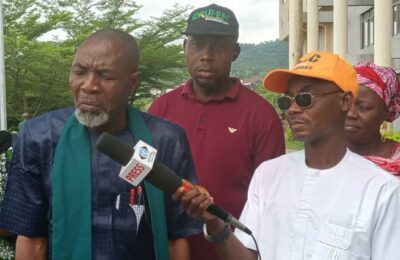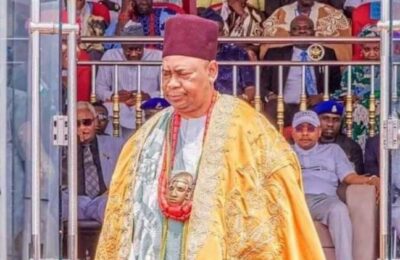By Musa Bakare.
In a vibrant democracy, political debate should be grounded in constructive dialogue rather than personal attacks. The continual efforts by the opposition coalition to undermine the President through derogatory remarks, rather than focusing on policy alternatives, fragment political discourse and distract from the pressing issues our nation faces.
As Nigeria approaches the 2027 presidential election, the political climate intensifies. For the opposition to gain traction, it is essential they shift away from destabilizing tactics aimed at delegitimizing their opponents. Engaging in meaningful discussions that address citizen needs and concerns is paramount. By presenting viable solutions and uniting on critical issues, the opposition can enhance its credibility and potentially earn the electorate’s trust, possibly by 2031.
This current strategy is not only misguided but fundamentally flawed. The masterminds behind these smear campaigns misinterpret President Tinubu’s political resilience and the unwavering support he enjoys from millions of Nigerians who recognize his bold reforms, courageous leadership, and steadfast commitment to the nation’s future.
The 2027 presidential election is a crucial moment for Nigeria to demonstrate its commitment to democratic principles. It is the responsibility of all stakeholders, government, opposition, and voters to engage in a campaign that embodies respect, integrity, and constructive criticism.
President Tinubu’s leadership credentials are not the result of media hype or opportunistic schemes; they stem from decades of proven performance. From his tenure as Governor of Lagos State, where he laid the groundwork for modern governance, to his current administration’s decisive actions in addressing fuel subsidy issues, unifying exchange rates, and advancing infrastructural renewal, President Tinubu has consistently chosen the harder, yet necessary, path for Nigeria’s long-term stability.
No amount of name-calling can overshadow the significant progress made in just two years. Under President Tinubu’s administration, the academic calendar in Nigerian universities has stabilized, support schemes for vulnerable students have been initiated, critical sector investments have increased, and economic reforms have been launched, changes that previous governments hesitated to address. These accomplishments resonate louder than the empty accusations hurled by political rivals. President Tinubu’s stature is rooted in substance, not mere rhetoric.
The opposition coalition’s reliance on negativity indicates a lack of vision. By dedicating their energy to vilifying the President instead of offering credible alternatives, they risk alienating the very electorate they seek to persuade. Nigerians possess the political sophistication to distinguish between constructive criticism and destructive propaganda.
History has proven that campaigns steeped in animosity and falsehoods often collapse under the burden of their contradictions. In 2023, similar tactics were deployed against President Tinubu, from orchestrated economic sabotage to character assassination. Yet, against the odds, the people rallied behind him, delivering a mandate that astonished his detractors.
One of the gravest miscalculations made by the opposition is the assumption they can destabilize Nigeria’s democratic foundation through organized disinformation. Nigeria’s democracy has matured, with citizens increasingly valuing stability over chaos. The electoral process is no longer swayed solely by emotional rhetoric, but by a candidate’s record of performance, pedigree and the promise of enduring governance.
The outcome of the upcoming 2027 election will depend not on the volume of the opposition’s claims, but on how clearly each candidate’s track record resonates with the aspirations of the Nigerian populace. In this regard, President Tinubu possesses a clear advantage.
If the opposition coalition genuinely seeks to challenge the APC, perhaps in 2031, they would do well to invest their efforts in articulating policies, mobilizing grassroots support, and building trust with the electorate.
While calumny may dominate headlines temporarily, credibility is what truly endures and resonates at the ballot box.
President Tinubu’s administration is committed to reform rather than populism, stability rather than reckless experimentation, and national unity over political opportunism. These are the hallmarks of leadership that Nigerians have seen in Asiwaju Bola Ahmed Tinubu and will consider as they prepare to cast their votes come 2027.
Coordinated attacks on President Tinubu may persist, but they will not derail his administration’s trajectory nor tarnish his reputation as a transformational leader. Nigerians understand that progress is a marathon, not a sprint, and that meaningful reforms require both time and sacrifice.
In 2027, the choice will be between a leader who has taken bold steps for Nigeria’s future and a coalition languishing in bitterness. The people know where their hope lies, and it is not in the cacophony of calumny but in the steady hands of leadership that delivers.
Nigerians should continue to rally behind President Asiwaju Bola Ahmed Tinubu’s administration beyond 2031 to foster a political culture that prioritizes substance over sensationalism, as we strive for a stronger, more unified Nigeria.
– Musa Asiru Bakare, member of the APC and Tinubu Support Group (TSG), political analyst, writing from Lokoja, Kogi State.




